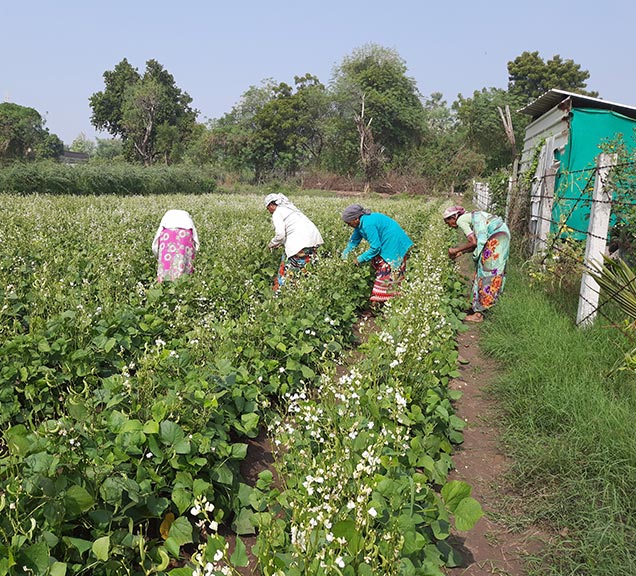Promoting secure and resilient livelihoods for smallholder households and ensuring a sustainable agriculture-livestock production system.
The project aims to promote more secure and resilient livelihoods for 5750 poor smallholder/forest fringe households from 21 villages in the Hazira and Umarpada locations of Surat, and ensure their productive and equitable participation in a sustainable agriculture-livestock production system. For almost 70-80% of the farmers from both locations, the landholding pattern varies from 0-2 acres, due to which they are not able to scale up their agricultural practices and earn more. The project is being undertaken in partnership with Shell India.
Within the agriculture and allied sector in the project locations, women are taking major roles in the farmlands. The work participation in crop production shows that more women are engaged with strenuous and time-consuming work as compared to men. Tasks like weeding, cleaning of farms, storing, and livestock rearing are completely done by women. However, at the same time, the awareness of women with regard to agricultural services and extension is minimal. Social norms, caste, culture, and purdah system restricts women from participating in household decisions. They are hardly exposed to the market and practice any extension services.
Our Activities
- To support these smallholder women farmers, the project has adopted a system-based approach, where the household is considered as the unit of implementation and provides support to three thematic areas i.e., agriculture, livestock, and institution building either through demonstration or through input support.
- Creating positive and enabling attitudes of Panchayat Raj Institutions (PRIs), service providers, and market institutions, toward the smallholders, especially women.
- To enhance skills and capacities of smallholder farmers for adopting sustainable agriculture/livestock-based production practices and promote inclusive and effective collectives of smallholder farmers for catering to their needs.





